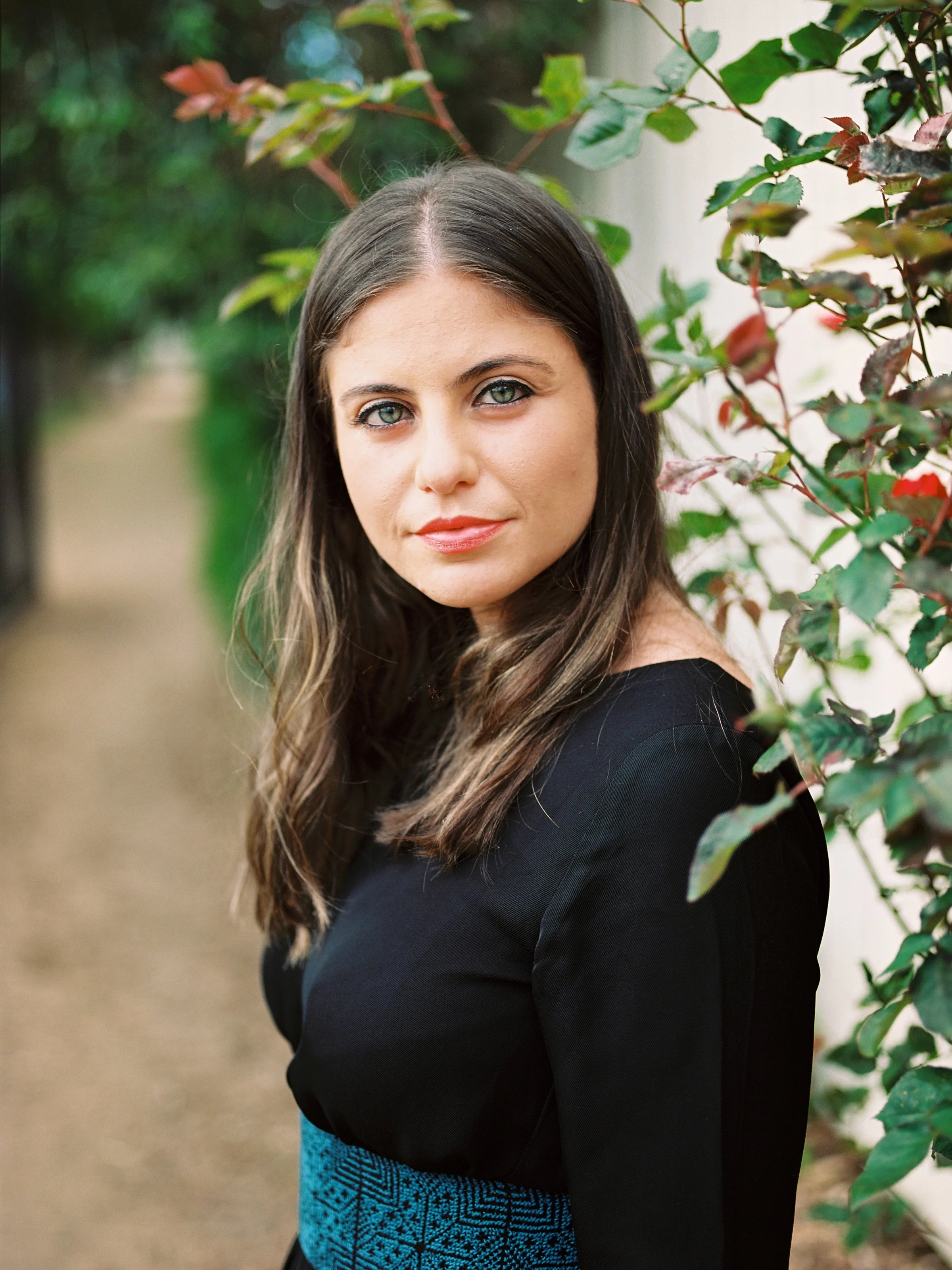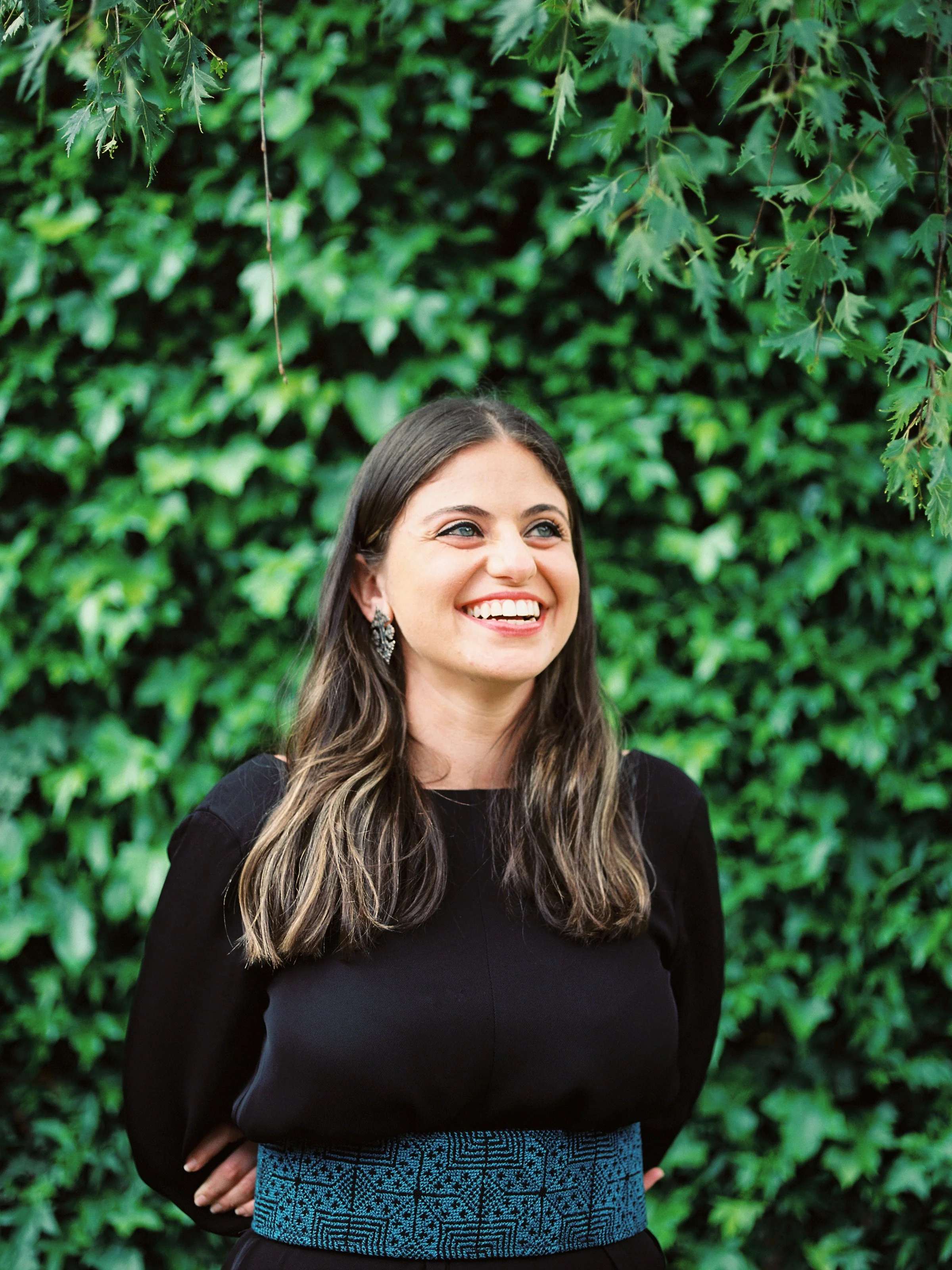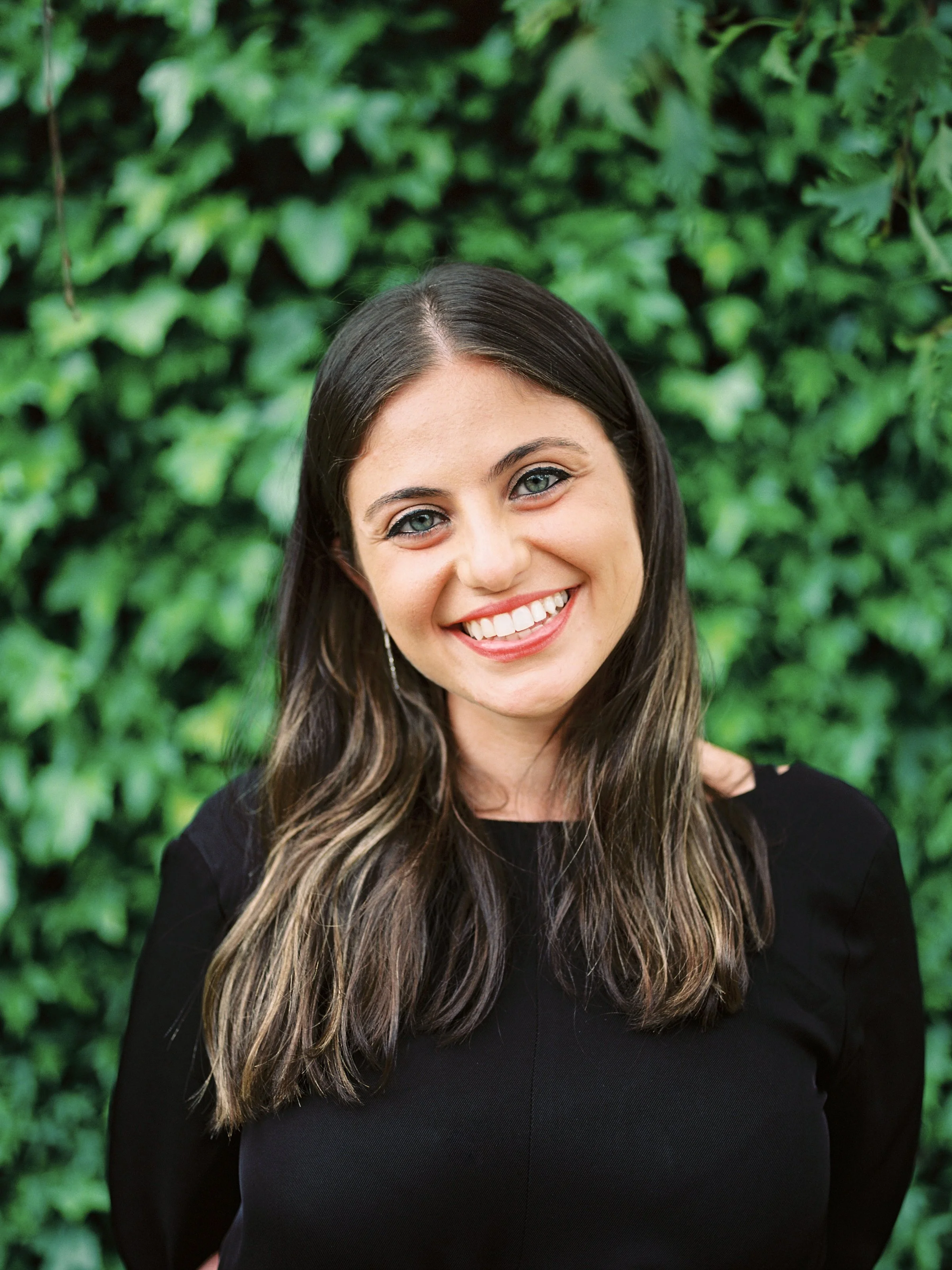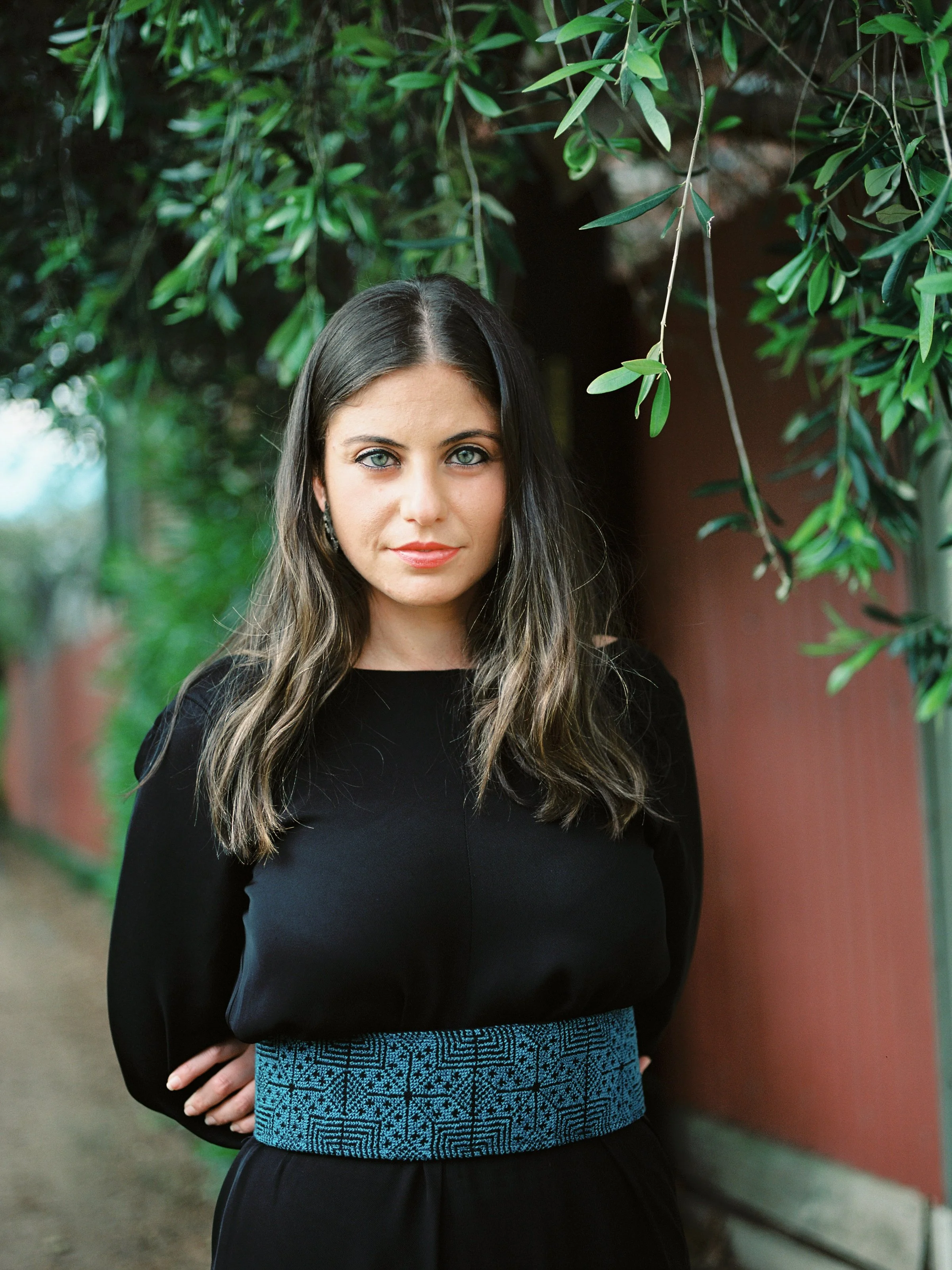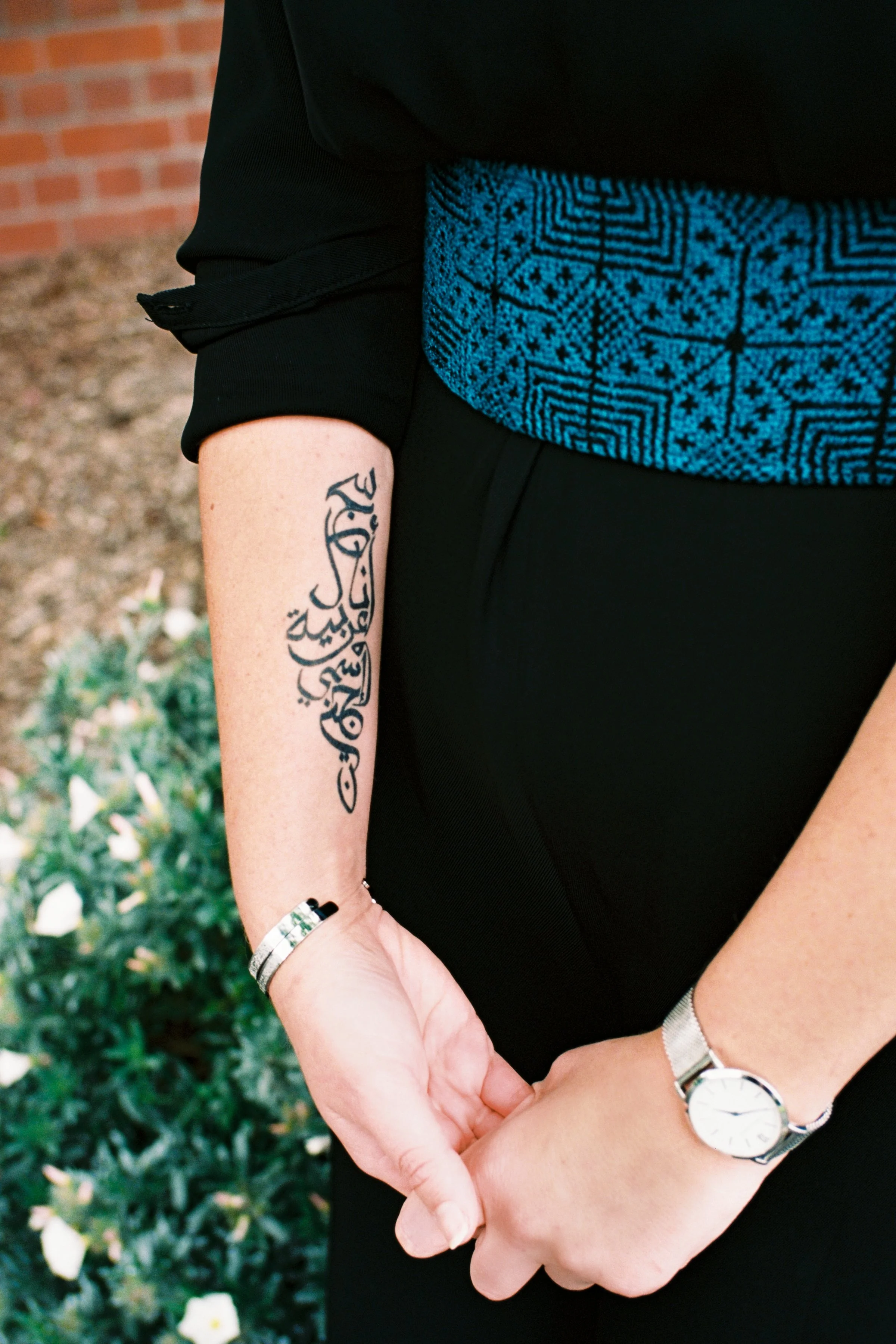Interview #194 — Jeanine Hourani
by Hasib Hourani
Jeanine Hourani is a Palestinian activist, organiser, and storyteller. She is the Director of Road to Refuge, an organisation that aims to change the narrative on refugees and people seeking asylum.
Jeanine spoke to Hasib Hourani about Palestinian activism, histories of organising, and limitations of language.
Tell me about your name. What it means, your relationship to it, how that may or may not have changed over time?
I’m named after the city of Jenin in the West Bank. I’ve never been asked how my relationship to my name has changed over time but it’s an interesting question. Jenin is a city known for the role it’s played in Palestinian resistance. The city embodies Palestinian hope and steadfastness and freedom. As I became more and more involved in activism and more active in the Palestinian liberation movement, I have felt more and more connected to my name and its origin and what it represents. To the point, actually, where I’ve been thinking about dropping the ‘a’ from the spelling to more accurately reflect how the city is spelled. I think when I was younger I liked how anglicised the spelling was because it made me feel less foreign. That obviously isn’t the case anymore and I want to embody Palestinian-ness in everything I do.
The root of the word ‘Jenin’ or ‘Jeanine’ actually comes from the Arabic word ‘Jneyne’ which means garden. The reason why the city is named Jenin, because it’s the greenest, most fertile land in Palestine. As I’ve gotten older, I’ve also realised how much my name also connects me to land and country and that gives me pride in it too.
It’s interesting how things get translated. The spelling right now, ‘Jeanine’, has all these extra vowels to cater to anglo readers. ‘Jenin’ is almost a direct translation of the Arabic characters, but in preserving that we run the risk of it getting mispronounced. There’s always a negotiation taking place for the white gaze. In this case it’s, “either I value how it sounds or how it reads”.
Prioritising the true spelling feels like a nod to history, to records. It exists this way on paper, maps, road signs. It’s like you’re restoring archives.
Totally. And I also feel like in some ways, getting too bogged down on the English spelling is also just pandering to the white gaze because who cares how it’s spelled in English?! It’s an Arabic name and as long as the Arabic spelling is the same as the city that’s all that matters… or should matter. But in reality, whiteness is centred in everything we do and how we live and that means that the English spelling does (unfortunately) matter.
Do you think there are feasible ways to de-centre whiteness in our narratives, while holding onto them as audience members?
I don't think we need to worry about holding onto them as audience members. I think we need to stop being so worried about ‘losing’ white people because they're actually not the majority, they just hold the majority of the power. That's the essence of de-centring whiteness in our narratives, it’s about moving away from whiteness as being the ‘norm’ and transferring power to our communities through platforming and amplifying our stories and narratives. I think we need to write and speak to and for our own communities first and foremost. That's how we de-centre whiteness.
You’re right. I’ve been thinking a lot about the importance of all narratives being represented. That’s what this ‘move away from whiteness’ is informed by. So moving away from whiteness, if it’s done properly, won’t eradicate white narratives completely, it will just mean that the different stories we have access to reflect the breadth of stories that actually exist.
You MC’ed the Free Palestine rally on Saturday, the 15th of May. It started outside the State Library of Victoria and ended outside Parliament house. I remember watching you speak and chant up on stage outside Parliament and thinking, I wish I had that vantage point right now. Can you talk me through it?
It was totally incredible. I mean you and I have been going to these protests since we were kids; we grew up going to them. And I had never seen a crowd that big in my life. I think there's two aspects to that.
First is that, standing up there on the truck and seeing masses and masses of people I was like, okay, wow, this is actually a big deal! When you're in the crowd and chanting and screaming, or when you read about the turn-out in the newspaper the next day, you can't visualise what all those bodies actually look like. It was a moment of immense hope. It was like, Okay, it's working. We're growing a movement here.
The second aspect is that the reason I had that vantage point was because that was the first time I’d been asked to speak, meaning that was the first time I got a view like that at a protest. It kind of felt like ok, we're leaders now, and that’s a lot of pressure. Having grown up with our grandparents and then parents’ generation being the leaders, being the ones organising the protests, speaking at protests, it was almost like the reins were symbolically being passed on to our generation and standing up there symbolised that.
You’re so right. This year was, I think, the first time it felt like the movement was youth-led. There’s always been an onus on us to eventually tell our elders, it’s okay, you can sit down now, we’ll do the heavy lifting from here, but it never really happened, not fully. I wonder why this time in particular cultivated that. What changed?
I think it’s really important to acknowledge the role that the generations before us have played in getting us to where we are today. We still have so much to learn from them. But yes, I do think it was youth-led for the first time and I think a lot of that was because it was being led by young people on the ground in Palestine, like the Al-Kurd twins. Also, it started on social media and for our generation, digital campaigning is almost second nature. That really played a big part in it. I think the social media component also globalised the intifada in a way that it hasn't been before. That's the essence of why it ended up becoming Unity Intifada. This concept of unity and globalising the movement symbolises both unity of Palestinians across 48, West Bank, Gaza, and the diaspora, but also unity of different movements across the world from Columbia to West Papua to Kashmir to Aboriginal solidarity here in so-called Australia. It was unprecedented.
We often talk about social media being specifically aimed at youth but, particularly for migrants, it’s a way to maintain ties to hometown, to family and friends who have been displaced elsewhere. This Unity Intifada saw a lot of people from generations above us sharing our content. That was surreal.
Have you had any conversations recently with Baba about the work you do organising, and mobilising, and what that’s like for him to watch?
We haven’t talked about that specifically or directly but he does always say how proud he is of the work that I do. I think he finds it quite unbelievable that he was taking me to protests as a toddler and now he comes along and sees me up there leading chants and making speeches. He also listens to every radio interview I do and reads every piece that I write. He’s mentioned, specifically with live radio, how he would find it so hard to maintain his composure. I explain to him that it requires so much preparation, practice, consolidating key messages. I prepare for media like I study for an exam. I think a lot of people forget that and I think, when it comes to Palestine, we have to prepare extra hard because we know how hostile the media is towards Palestinian voices.
People assume our knowledge is inherited passively. Like we’re born with it. But we actually have to work twice as hard to acquire it. Not only do we have to self-teach and memorise this history, there’s the labour of recovering hidden, destroyed, and censored information in the first place. We’re archeologists too.
You’re currently the director of Road to Refuge. So much of the organisation’s work is about autonomy. Giving back the license over our own narratives. How did you fight for license over your narrative? Or maybe fight isn’t the right word.
I didn’t move back to Naarm/Melbourne until I was eighteen years old. Most of my upbringing was in the Arab world where there was a really different narrative around Arabs, Muslims, Refugees, Palestinians. It was so different that I hardly thought about my story or narrative or rhetoric. When I moved here at eighteen and people starting asking me all these questions and making all these assumptions about me, my beliefs, my background, my politics, I came to this sudden realisation people had bought into a really harmful narrative on race/racism and refugees and Islam and Palestine. I felt like something I had taken for granted my whole life was suddenly not mine anymore in this new environment. So, I started working to take it back.
That’s something that frustrates me so much and so often. You and I didn’t grow up facing adversity for being Arab, Muslim, or even Palestinian. At least, not in the same way that these things manifest in the anglo west. But when I moved here everyone assumed I lived my whole life as a minority. No. I grew up around my people, community, culture. I definitely took that for granted too.
And that really just goes to show how homogenised our stories have become. People think every Arab, Muslim, Palestinian, even POC story to some extent is the same. The narrative has completely ignored the plurality of our lived experiences and that's I guess what we're trying to counter at Road to Refuge. Change the narrative by diversifying it.
Have you found spaces here where that western frame isn’t the baseline? Where you can breathe easy and exist without having your identity homogenised?
I think the spaces here where the western frame isn’t the baseline are, unfortunately, few and far between. Even within our own communities, I think a lot of people tend to aspire towards proximity to whiteness as a marker of success in this country. It’s not their fault either, this nation has been built in a way that assumes ‘White/Anglo’ is the norm and everyone who isn’t that needs to aspire to be that in order to ‘fit in’. That's not diversity, that's assimilation. Even the word ‘diversity’ makes me feel uncomfortable—diverse from what? The norm. Which is whiteness.
I've been using the identifier of ‘global majority’ lately instead of ‘POC’, because it veers away from the idea of white as baseline and anything else as divergent to that. We are the majority. We’ve been made to think and feel otherwise. But that term, ‘global majority’, isn't really conversational. It’s so hard to identify oneself as not white without saying just that. And now we're back to the same restriction of language that started off this conversation.
This also comes back to the point we were making earlier about de-centring whiteness in our narratives because they are actually not the majority. I actually think the challenge with the term ‘global majority’ is that is leads us to this assumption that we have the majority of the power, because we’re the majority of people. That would make sense right? So I don’t think the term captures how systems like patriarchy, white supremacy, capitalism or colonisation/imperialism impact our experiences—how they have enabled the majority of be minoritised. But I think the fact that we’re the global majority and have so little power is just so disturbing and the crux of the issue really.
Do you remember a time or scenario where you felt particularly cornered in by the English language?
In terms of my experiences, a lot of my understanding of love and grief and injustice come from my faith, Islam. And the Quran is written in Arabic which is the language I learnt it in, the language I grew up with, and the language of my ancestors. So when it comes to articulating those big concepts around love and grief and injustice in the visceral and spiritual way that I understand and feel them, the English language really just doesn’t carry.
I find English such a feeble language. And when I read translations of the Quran in English I almost feel a wave of secondhand embarrassment. The wording is corny! And cliché! And I think this is because it’s trying to replicate the dynamism of the Arabic language but it’s simply not possible.
So true! The Quran is also very poetic so words are symbolic and metaphoric and have double meanings and translating it into English just doesn’t carry all of that across.
What’s your favourite book right now?
Hmm, well, I think my favourite non-fiction book is Freedom is a Constant Struggle by Angela Davis or Normal Life by Dean Spade. I also recently read Pedagogy of the Oppressed by Paulo Freire which is just critical reading for everyone! Fiction is a lot harder to choose what my favourite is… I mean even with non-fiction I just gave you three different books I love and could probably keep going.
It’s hard to know what to ask you because I’ve known you for twenty-five years. But what’s something that a lot of people don’t know about you? Something that you assume everyone already knows but doesn’t?
Hmm... that's a really hard question because I do feel like I'm a bit of an open book. I think people assume that my journey to activism was linear. I often talk about how I grew up in the struggle and how inextricably linked it is from our identities. While that’s true, I didn’t always feel (or want to feel) a connectedness to it. You know, I spoke earlier about how whiteness is perceived to be the norm and proximity to whiteness is perceived as a marker of 'success' and there were years in my early adult life where I truly bought into that notion. I didn't always feel proud of my background or my identity and I think that's something people don't really realise. It really did take me a while to get here.
Do you have any advice for people who are only recently coming into their involvement in social justice?
I think it’s really important for everyone, not just those only recently getting involved, to be constantly actively learning. It’s important that we’re always reflecting on our own privileges and thinking about when we are the right people to speak on an issue, and when it’s time to amplify the voices and experiences of others. To not be caught up in the ‘celebritisation’ of activism or think that visibility is the end-game, but remember that it’s always about building community—about building movements alongside others. It’s about the collective. It’s about working in solidarity and remembering that solidarity is a practice, and so is ally-ship.
Solidarity is a practice. How do you make sure that there are healthy boundaries in place for you to take space from that practice when need be, like you would any other practice?
To be honest, I’m not very good at setting boundaries when it comes to my activism—it’s something I need to get better at. Having said that, I also don’t think you can really take a ‘break’ from solidarity in your day-to-day life, but I do think you can take a break from your day-to-day life, if that makes sense. Activism can really be relentless sometimes, especially in the age of social media. I think taking tech breaks, for example, is really important. Carving out time to recharge by looking after yourself. One of my favourite ways to do that is through community care—spending quality time with my people in a space that I know is safe and where I can be truly myself and let me guard down without having to be ‘on’ all the time.
Find out more
Interview by Hasib Hourani
Photographs by Hashem McAdam

